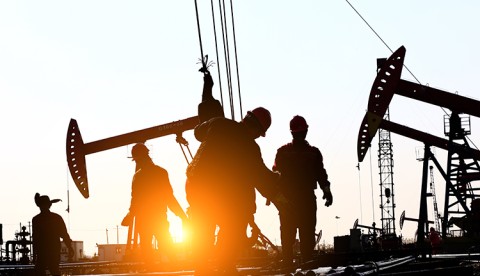The UN Climate Summit (COP27) has paved the way for the hydrocarbon industries to be part of the climate action talks in COP 28. The COP 27 Decarbonization Day was focused on implementing the Global Methane Pledge, a voluntary agreement to reduce global methane emissions by at least 30% from 2020 levels by 2030. This comes as COP27 featured discussions on the urgent need to curb methane emissions and the implementation of the pledge. Despite the progress, some have expressed the view that the efforts under the pledge may not be sufficient, emphasizing the need for more ambitious action to effectively reduce methane emissions. The significance of the Global Methane Pledge and its subsequent developments in COP28 demonstrate the growing international recognition of the importance of addressing methane emissions in the fight against climate change.
COP27: Paving the Path to Low-Carbon Future
During COP27 Decarbonization Day, several key agreements and outcomes were reached, which contributed to the global efforts to combat climate change. Some of the most significant outcomes include the breakthrough agreement on a new Loss and Damage Fund for developing countries to support the most vulnerable nations affected by climate disasters, such as floods and droughts. This agreement was widely lauded as a historic decision.
COP27 further included the Glasgow Pact pledges (from the previous COP event), which aimed to increase the ambition of countries’ climate commitments. However, the final draft of the COP27 cover text did not include these pledges, and the timeline for their inclusion was extended to 2024 or 2030. Moreover, the conference made progress on the Mitigation Work Program, addressing the operational details of carbon markets and other climate initiatives.
Accordingly, COP27 paved the way for COP28 to build on the results reached in the Decarbonization Day. During COP28 UAE Energy Day panel discussions key remarks, Egyptian Minister of Petroleum and Mineral Resources, Tarek El Molla, stated: “Today, I am certain we will be building upon the successes, breakthroughs, and achievements of COP27 – UN Climate Change Conference as COP28 UAE is targeting to be inclusive, transparent, pragmatic, and result-oriented.”
COP28: Opening New Horizons
COP28 continued the momentum of decarbonization initiatives from COP27 by achieving several key outcomes. The 52 signatories of the Oil and Gas Decarbonization Charter committed to net-zero operations by 2050 at the latest and ending routine flaring. The Industrial Transition Accelerator, with the endorsement of 35 companies, will catalyze decarbonization across heavy-emitting sectors, including energy, industry, and transportation, according to the United Nations (UN)’s Summary of COP28.
“Decarbonization was not previously a consideration, but it is now an essential component of any updates. We are incorporating this crucial parameter into the equation, along with all of the efforts being made to decarbonize our entire value chain from upstream to midstream to downstream with the support of our partners. Our partners are the major oil and gas companies operating in Egypt, and we have already made significant progress in this area,” El Molla stated in his key remarks during COP28 UAE Energy Day panel discussions, which took place at the Blue Zone, Egyptian Pavilion.
The COP28 Presidency led the launch of initiatives focused on collaboration towards reducing sectoral emissions, with both Parties and non-Party stakeholders. The Global Cooling Pledge for COP28 includes 66 national government signatories committed to working together with the private sector and civil society. The challenges faced in the first week of COP28 are a reminder of the complexity inherent in addressing climate change, but the global community eagerly anticipates further developments, hoping for more consensus, ambitious commitments, and tangible steps toward a sustainable and resilient future.
The Significance of the Methane Pledge
COP28 resulted in a global agreement to transition away from fossil fuels, which commits countries to reduce global methane emissions by at least 30% by 2030. The pledge was launched at COP26 by the European Union and the United States and now has over 150 country participants, representing a little over 50% of global anthropogenic methane emissions. The Global Methane Pledge aims to catalyze global action and strengthen support for existing international methane emission reduction initiatives to advance technical and policy work that will serve to underpin Participants’ domestic actions.”
Since COP27, over $1 billion in new grant funding for methane action has been mobilized, more than triple current levels, which will mobilize billions in investment to reduce methane. At the Global Methane Pledge Ministerial Meeting hosted by Clean Air, Ministers celebrated progress and showcased national actions and catalytic grant funding to deliver on the goal to cut methane. The meeting explored successes and challenges faced since COP27 in country resource mobilization and project execution, and focused on how to turn these learnings into measurable actions that cut methane emissions.
Today, controlling methane emissions has become easier, and the future is promising in terms of having less emissions. “We are in a moment where the technology is evolving so fast that companies and regulators in different countries struggle to keep up, and with that innovation is coming cost reductions. So, actually, methane mitigation is getting cheaper and cheaper, especially in the oil and gas sector,” Brad Crabtree, Assistant Secretary U.S. Department of Energy (DOE) stated during the panel discussion ‘Advancement of Decarbonization & Energy Transition’ on the second day of COP28 UAE Energy Day.
Hence, COP 28 has built on what has been decided and achieved in COP 27. This comes as both editions highlighted decarbonization efforts and the Methane Pledge. Accordingly, COP 28 witnessed a global agreement empowering transition from fossil fuels and aiming to reducing methane emissions.








